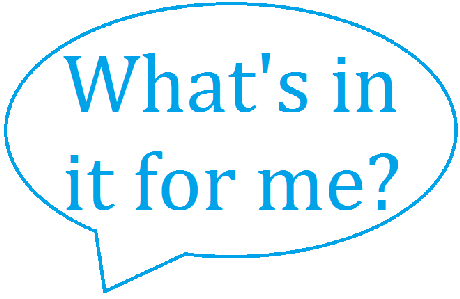 Marketing your products or services is an art, not a science!
Marketing your products or services is an art, not a science!
Let’s face it, most marketers have no idea what their customers and prospects really think about their marketing communications.
Take a survey and ask your prospects, clients and customers to tell you exactly what compelled them to buy your wares. How many were hypnotized by your fancy print ad; mesmerized by your flashy sales page, or seduced by your expensive website and colorful brochures?
Chances are…one or more of these marketing tools totally failed to get their attention, and fell short of inspiring them to take action.
The majority of marketing resources—websites and printed material—are literally being “clicked away from” or thrown into the metal bin without as much as a glance at your offerings. We will now explore five killer advertising mistakes made by numerous companies, so you can learn how to market a product without boasting, bothering, or boring the daylights out of your prospects.
—
Benefits Sell, Features Don’t
Stop naming a laundry-list of product or services features; no one cares! Time and time again I peruse the Internet and find various websites listing every single “feature” their products or services have. Here are a few typical examples of tech-related feature-stuffing using a mock cell phone advertisement:
Buy our smartphones, they feature:
- Dual Quartz Crystal Radio Transmitter
- Reinforced Polycarbonate Casing
- 1080P Video Resolution with Dithering and Noise Filtering
- Super Lithium Green Battery
Now let’s translate those FEATURES into tangible BENEFITS:
Here’s what you will get from our smartphones:
- Improved reception, experience less call drops and better clarity
- Reinforced plastic casing that resists wear, cracks and damage from dropping
- Watch movies on your phone in high definition with a perfectly clear picture
- Environmentally-friendly battery with three days of talk time per charge
—
Stop Boasting About Your Products or Services
Marketing your product or service does not require bragging. Stop bragging about you, your company and offering because no one actually cares! What your ideal prospect does care about, however, is how they will benefit from what is being sold. What do I mean by bragging? Take a look at a few good examples from a typical company suffering from “boast-it is”
- We are the best in the industry
- We have been in business 30 years

- All of our customers are satisfied
- Our knowledgeable and friendly representatives are ready to help you
- We put $1 Billion dollars into research and development
Notice any benefits there? Although the aforementioned points show the company is established, with satisfied customers, cash and expertise; the person looking to buy is most likely not making a decision based on those factors. They ARE basing their decision on:
- How can your product or service help them?
- Can it make them more money?
- Make things easier for them?
- Save them money or hassle?
What can you do for them? That’s the baseline to write from—always.
—
Limit the Boring Technical Jargon
This point doesn’t have to be expanded upon; see point number one above. Jargon that is easily understood by the tech-savvy or the engineering squad at your place of business is not necessarily understood by your prospects.

Solve this issue and many more by using terminology that is reasonably understand by people outside of your industry. Expect potential customers to have no experience with your product or service and no knowledge of your industry. Lead them to the buy button gently—don’t intimidate and bore them with jargon.
—
Hire a Good Copywriter
Who knows how to market a product without securing a good copywriter first? My guess is— very few if any. Since we are learning how to market a product using print and online text, writing naturally comes into play here. Why? The answer is simple:
When your prospect starts yawning, all bets are OFF.
You can have the best intentions in the world, with a killer product or service, experience galore and raving fans. However, if your writing skills can’t convey the right message to the right audience in the right way—kiss those marketing dollars (or marketing hours) goodbye.
There is no shortcut to hiring a good copywriter, especially when making substantial marketing investments that absolutely depend on a decent ROI. The skill should definitely fit the bill. Here’s a final question to ponder:
Who expects an average street racer to make it into the Indy 500?
Jarvis Edwards - Commercial Copywriter

